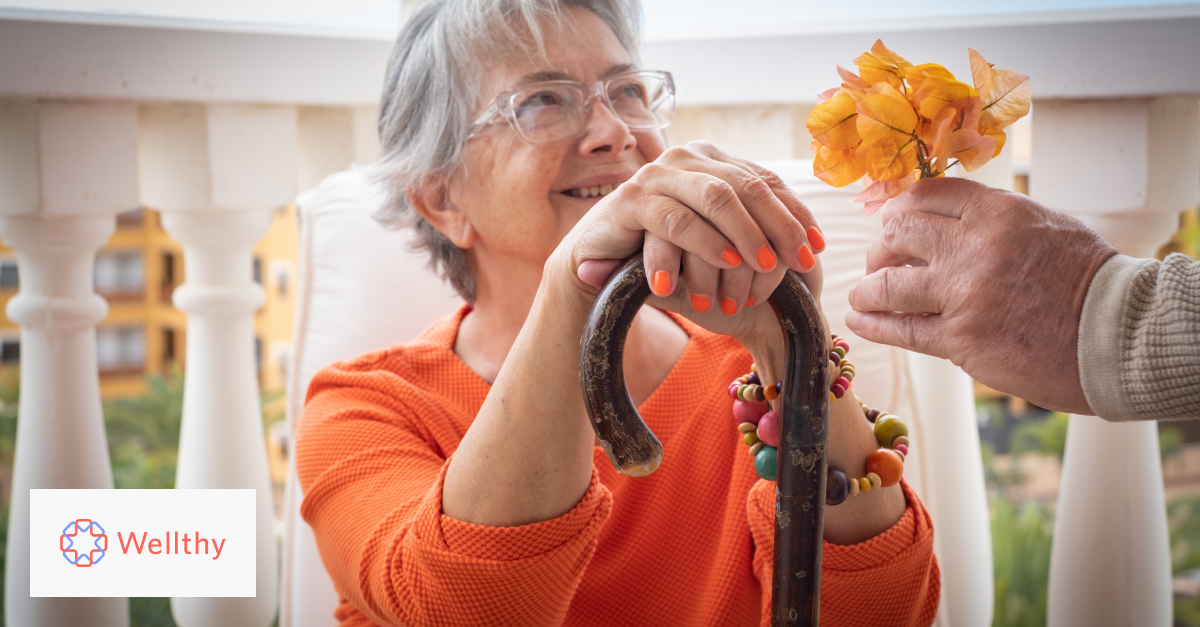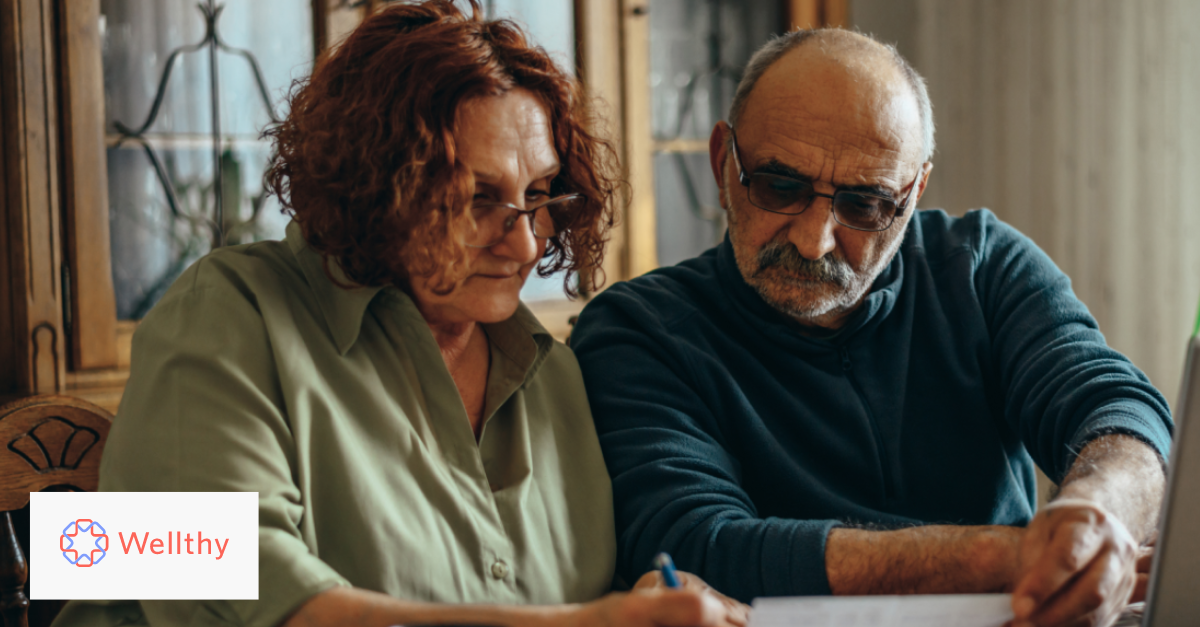With our Care Expert Spotlight series, we’re taking a peek into the lives of Wellthy's amazing care professionals.
This month we spoke with Courtney, a Care Coordinator with extensive experience in the mental health and social services space. Wellthy’s team of Care Coordinators and Advisers work directly with families to understand their care needs, create a care plan, prioritize tasks, and get things done on their behalf.
What is your background in and what drew you to Wellthy?
I have been a Licensed Social Worker in the state of New Jersey for about 15 years, so I have a lot of experience in the mental health field. I have worked with many different age ranges and populations, from working as a therapist in an elementary school, to working in a long-term care facility as the director of social services. I have also done in-home visits and worked with adults with mental illness in group home settings.
I think that in doing all this fieldwork, I got to know the different services that are out there. I have found that there are so many programs with great intentions, but that do not have the level of impact that they are capable of because they aren't reaching everyone they could possibly help. Connecting people to these programs and resources has always been my drive. This is especially relevant when there are barriers like mental health. How do we reach those people who are suffering in silence or suffering alone?
So, when I found Wellthy, I was like, 'This could be the missing link.' It almost seemed too good to be true. I get to bring people resources they wouldn't have otherwise found, and that's honestly what I love doing. When I meet a new family, I love giving them that education so they are aware of all of their options and can make informed decisions. Just taking the time to really understand each family's situation, understand where they are, what they have tried, and what has and hasn't worked. That is where my experience helps, too.
How long have you worked at Wellthy and what is your role here? What do you specialize in?
I have been a Care Coordinator at Wellthy for almost two years and am also on the Mental Health Guru Task Force. On this task force, we work on identifying and compiling resources that can be helpful for other Wellthians who do not have extensive experience in mental health. Our goal is to ensure our colleagues have valuable information at their fingertips to assist the families they work with who have mental health concerns.
Every type of task at Wellthy has its own task force. We have task forces for mental health, medical, financial, veterans, child care, and facilities. These task forces are made up of people who have identified experience in that specific field.
What is your personal caregiving story?
As a mother, my primary caregiving role revolves around my children, who have faced significant health challenges over the past year. Coordinating with specialists and figuring out which doctors they need to see is incredibly difficult, especially since, 2 years ago, my husband and I moved away from all of our family. That meant moving away from our whole support system. Now that they are not around to help, I really feel their absence, especially now that they can't help with all the extra things. So I think that when I think of caregiving, that's my main role as a caregiver is as a mom.
How do we help families who lack resources in their area?
There are people in truly rural areas where there is nothing around, and finding care support for any health situation is a challenge. However, I think it's a matter of initiating conversations and advocating for services.
That means calling local agencies and saying, 'Somebody has to be in this situation somewhere in your community.' I had one case in particular with an older woman looking for in-home care. The agency told us, 'If you can find 2 other people in the community that need help, we'd be willing to consider sending a caregiver out.'
So, it's about having those conversations. This applies to any situation where services may be lacking, whether it's childcare or elder care. The key is reaching out and having those conversations with people in the community. By doing so, you can potentially identify others with similar needs and work towards bringing necessary services to your area.
Even on some tasks where the care advisers get stalled, I'm not afraid to pick up the phone and just have a conversation. And just say, Look, this is really hard. You're in the community. What do you think? What are your thoughts? And just following that rabbit hole.
What is the most common mistake you see caregivers make?
Trying to take on everything themselves. I have seen that lead to frustration and disappointment in themselves. That often snowballs into burnout, and general feelings of failure and thinking they are not a good caregiver, when, in fact, most things in caregiving truly do take a team to accomplish.
For example, I am currently working with a woman who is the sole caregiver for her mom. She had so many tasks she was trying to accomplish all on her own while maintaining a full-time job. She felt overwhelmed and defeated trying to accomplish all these tasks that took even me so many hours to complete. When you have support and are able to delegate work it is so helpful and meaningful in the caregiver relationship.
Do you have a favorite story from working with a family?
Yes, the story I just spoke about, the woman who is the sole caregiver for her mom. When we first spoke, I took all the administrative tasks off her plate so she could focus on everything else. However, these seemingly simple tasks turned out to be much more challenging than either of us anticipated. We worked through these hurdles, and I mean, every obstacle was thrown our way, but we got the member what she needed.
After the first doctor's visit that the member went to with her mom, she reached out and told me that what Wellthy had done was life-changing. Simply having the right equipment made their lives so much easier. Being able to take these tasks off the member's plate and give her peace of mind was incredibly rewarding. Now it's not going to be so difficult for them, you know? I just truly loved working with that family and really helping them in that way. It's so motivating.
How does someone know when it is time to work with a care coordinator?
I think it is definitely different for everyone. Some people start reading and gathering information and don’t know what to do next. I think that is a great point to ask for help. There is another family I am working with where the son started researching, but needed help connecting all the dots between everything he absorbed. At this point, a Care Coordinator can really help members connect all this information to the bigger picture. However, for others, they might not even know what to look into, and might want to seek help before that point. People often know there is an issue that needs to be addressed, but don’t know where to start or what their options are and are unable to make an informed decision. This is an excellent time to reach out to a care coordinator and utilize their expertise and resources to help understand the full picture of their situation.







